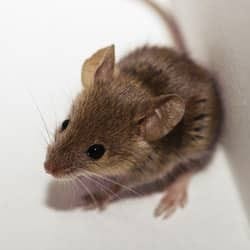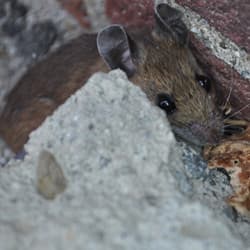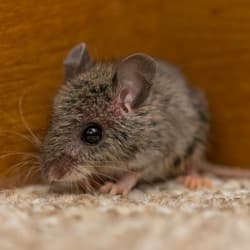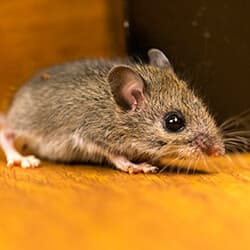Removing rodents from your home is most successful when you understand whether you are dealing with a mouse or rat infestation. Not only do mice and rats look different, but their behavior, habits, and food preferences are slightly different as well – meaning you can improve your rodent infestation removal efforts simply by knowing which species you are dealing with.
Signs of a Rodent Infestation
The telltale signs of a rodent infestation include droppings and urine odors; gnaw marks and holes, nests, and scampering noises throughout your home. The size of the droppings can help indicate whether you are dealing with a mouse or rat infestation. If the droppings are one quarter of an inch or smaller, you’re dealing with mice. If the droppings are half an inch or bigger, you’re dealing with rats.
Behavior Differences Between Mice and Rats
Mice are curious creatures and like to investigate everything. Place traps in areas with mice droppings, as they are likely to run through that area. Rats, on the other hand, are cautious creatures and avoid new things until they have gotten somewhat used to them. Your best bet with rats is to place unset traps in the likely rat path for a few days, to give the rats time to get used to it being there before setting it in hopes of trapping the critter.
Mice build nests near food sources and prefer to eat plants and grains, although they will eat most anything if they have to. Rats, on the other hand, burrow under buildings and under plants and debris, and prefer to eat plants and other animals. Rats will even eat mice. Both are nocturnal creatures, preferring to do most of their exploring at night, but may be seen during the day if their nests are disrupted or they’re in search of food.
Getting Rid of Rodents
Take some time to inspect your property and properly seal any cracks and crevices. Both mice and rats can enter your home through tiny openings (mice only need a hole about the size of a dime to get in, and rats just slightly larger than that!)
If your trapping efforts haven’t eliminated your rodent infestation, call Russell’s Pest Control for rodent elimination services. We’ll conduct a thorough inspection of your home to determine whether you have a rat or mouse infestation, deploy proper pest control measures to get rid of existing rodents, and help you prevent future infestations.




